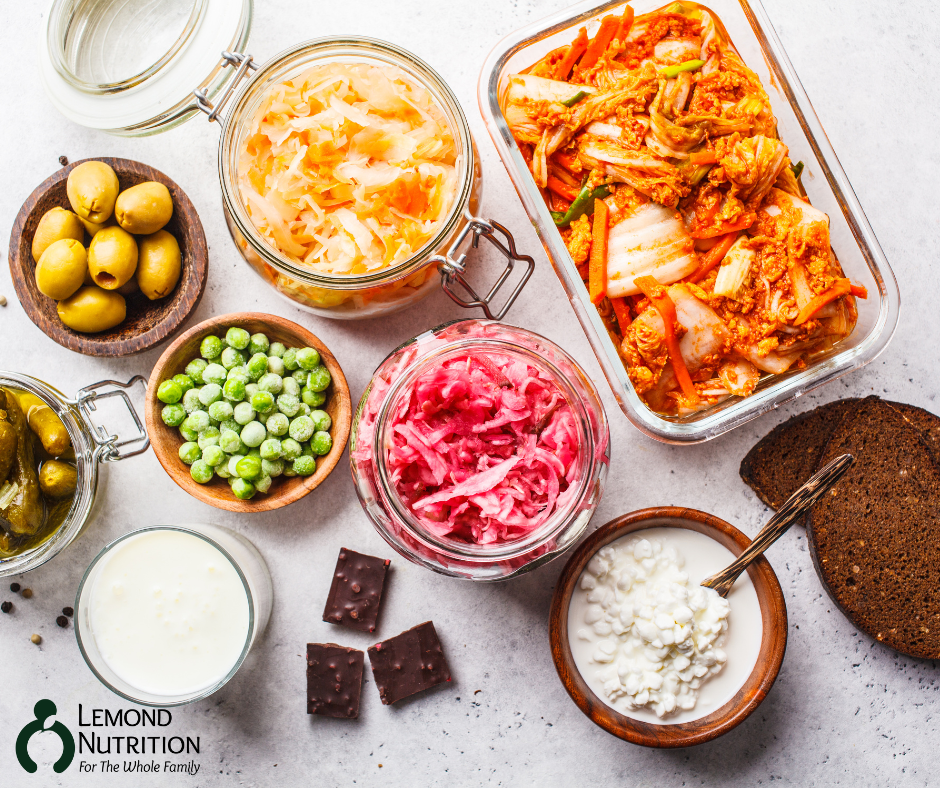Eat for Optimal Immunity
Let’s face it. Viruses and other pathogens love tired and strung out hosts as their victims. Self-care is so important. We also know that those with underlying health conditions are more likely to have more severe forms of viral illness like the flu and COVID-19. Living in a pandemic could make a person feel like a sitting duck, but there are lifestyle habits we can focus on that can have an immediate impact on your health.
In addition to following the CDC guidelines of handwashing, social distancing and mask wearing, we can also add some targeted nutrition and lifestyle habits to help keep your body strong.
Nutrition
Vitamin D. Everyone should know their vitamin D levels. Although the evidence does not show a higher likelihood of getting COVID-19 with vitamin D deficiency, it does show that vitamin D deficiency is linked to severity of disease – things like hospitalization and death. Foods high in vitamin D are fatty fish, eggs, fortified milk and mushrooms (shitake and maitake). If you are deficient, you will need supplemental vitamin D to normalize your levels.
Vitamin E. A powerful antioxidant to fight infection, vitamin E is found in foods like sunflower seeds, almonds, avocados, salmon, peanuts, asparagus and various vegetable oils.
Vitamin C. Lower intakes of vitamin C may make someone more prone to illness. We all know that oranges and other citrus fruits are high in vitamin C, but did you know that strawberries and potatoes have more? Other foods high in vitamin C are bell peppers, melons and broccoli.
Protein. As soon as you get sick, protein needs increase. Even when you don’t feel like eating when you’re not feeling good, get that protein in. Milk, yogurt, eggs, meat and poultry are all high. If you prefer vegetarian, eats some nuts, seeds, beans, lentils and tofu.
Zinc. We are finding too many people taking supplemental zinc as a preventative of the flu or COVD-19. Zinc should not be taken long term, as it could cause copper deficiency. But make no mistake, zinc plays a central role in the immune system. You do want to consider zinc if you do get sick, and also eat foods high in zinc like oysters (very high), crab, pumpkin seeds and tofu.
Probiotics & Prebiotics. The gut houses 70% of your immune system, so feed your gut well. That includes having foods that promote a healthy bacterial flora in your GI tract. Foods high in probiotics include yogurt, kimchi, kefir, kombucha and tempeh. Be sure to get your fruits, veggies, beans, legumes and whole grains that all naturally have prebiotic activity; this means that it promotes the growth of helpful bacteria that fight disease.
Lifestyle
At Lemond Nutrition, we don’t just talk about food and nutrition here. We realize that many lifestyle factors must be considered when assessing the health of an individual. You cannot just focus on wholesome food as your ticket to good health. You must get adequate sleep, manage your stress levels, find joy in regular movement and stay properly hydrated.
Focus on what to add to your plate, not to remove and it makes nutrition much more empowering. Include all these foods and lifestyle habits with the CDC guidelines and you’ll really increase your chances of staying well during this time of year.
Need more help? Give us a call at 972-422-9180 and one of our dietitians can go through your specific lifestyle to make reasonable goals for making you the best version of you.
About Angela Lemond
No information on this site should be used to diagnose, treat, prevent, or cure any disease or condition.










